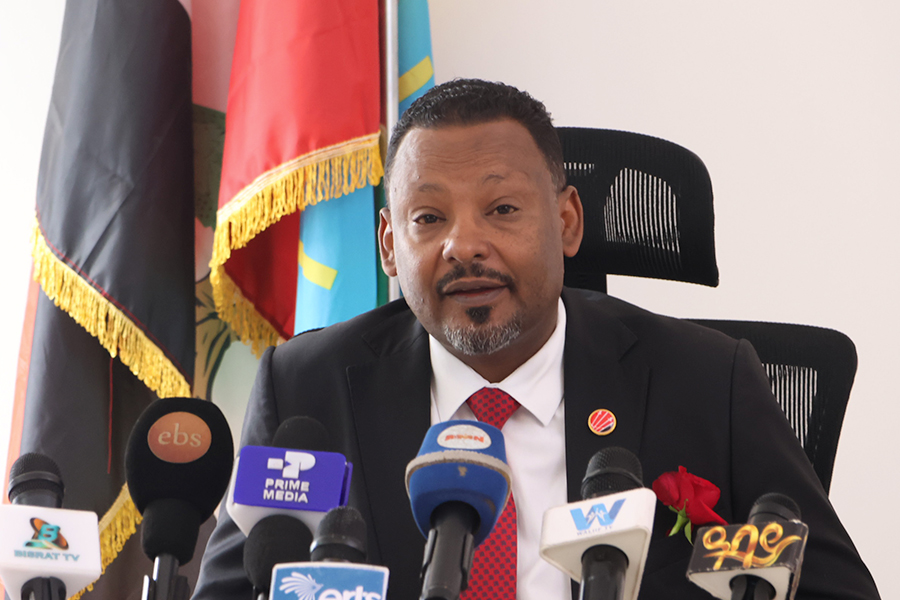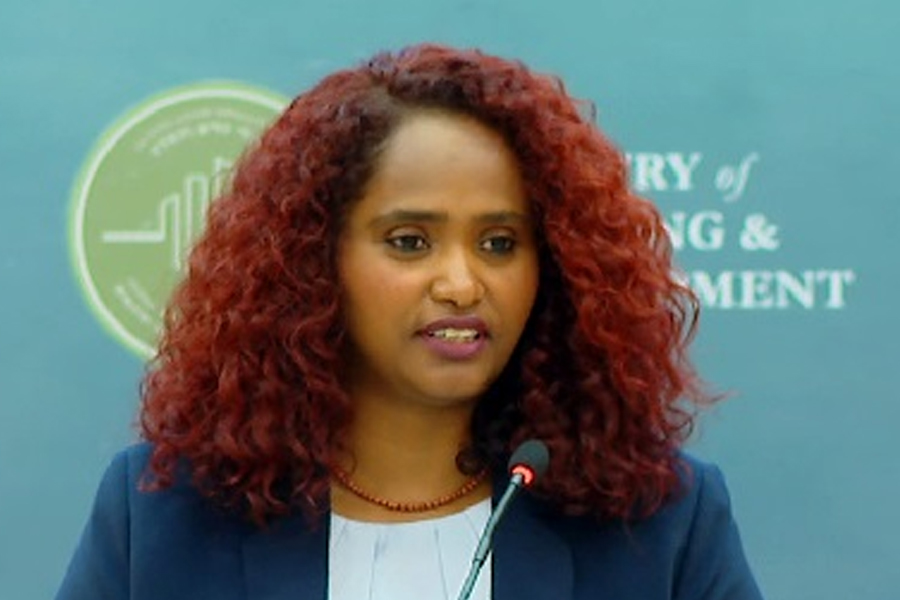
Editorial | Jun 18,2022
May 11 , 2024
By Hintsa Andebrhan
President Yoweri Museveni's recent remarks at the World Bank summit in Nairobi sharply encapsulate a long-standing debate about the direction of Africa's economic development. By invoking the term "sustainable underdevelopment," Museveni shed light on the continent's struggle against economic models that have historically not served its best interests. This critique points to the deeper issue of economic strategies often externally influenced by institutions such as the International Monetary Fund (IMF) and the World Bank.
The establishment of the IMF and the World Bank by the victors of the Second World War, led predominantly by the United States, has long been a contentious issue. The Bretton Woods Conference of July 1944 set the stage for this new economic order, establishing a system of fixed exchange rates that effectively placed the U.S. Dollar at the global economy's centre, linked directly to gold. Other currencies were pegged to the Dollar, embedding an American dominance in global finance.
The implications of this system, which ended when President Richard Nixon decoupled the Dollar from gold in the early 1970s, still resonate today. Despite the collapse of the fixed exchange rate system, the Dollar's influence continues, underpinning critiques that the Bretton Woods institutions represent a form of modern colonialism. The sentiment is particularly resonant in Africa, where economic policies prescribed by the IMF and the World Bank continue to influence domestic economic strategies.
These institutions have embedded themselves into African countries' political and economic fabric, coaxing development strategies that do not necessarily conform to their individual needs or contexts. For instance, the enthusiasm of African leaders, including Prime Minister Abiy Ahmed (PhD), for endorsements from the IMF and the World Bank about their economic growth, seems misplaced to some observers. These growth reports often contrast with the daily realities of the populations they are meant to depict.
Despite positive growth reports, millions of Ethiopians struggle with necessities—a disparity made apparent by Foreign Minister Taye Astkesellassie's recent appeals in Geneva for aid to assist millions affected by hunger and conflict.
Museveni’s sermon at the summit reflected an awareness of the philosophical, ideological, and strategic missteps that have historically plagued African economies since the 1960s. He argued, rather forcefully, that only radical changes to these socio-economic policies would establish a sustainable development pathway for the continent.
Indeed, looking at Africa's vast resources, it possesses over 30pc of the world’s natural reserves. Yet, the continent has not effectively leveraged these resources due to corrupt practices, inadequate political governance, and external economic pressures. These factors contribute to an economic status quo where many countries in Africa remain dependent on the frameworks set by the Bretton Woods agreements, limiting their ability to pursue independent economic policies.
The adherence to economic models promoted by the IMF and World Bank often does not translate into real economic progress or development that reaches the broader population. While political leaders may tout GDP growth figures amplified by these institutions, the lived experiences of their respective citizens often tell a different story. The disconnect feeds into the narrative that international financial institutions, while perhaps well-intentioned, may inadvertently perpetuate economic dependencies that resemble a new form of colonialism.
Corruption, poor governance, and the persistence of conflict are substantial barriers to development that need to be addressed internally within African governments. These internal crises often provide an opening for international bodies to exert influence over domestic policies, further complicating the path to genuine autonomy and sustainable development.
Leaders like Museveni have urged the way forward, which involves reevaluating the economic and political strategies that have guided Africa's post-independence life. Breaking free from the Bretton Woods institutions' economic prescriptions will require innovative economic policies and a robust political will. The leaders must commit to long-term strategies prioritising their populations' welfare over favourable short-term economic reports.
Greater continental integration might strengthen Africa's path to economic sovereignty. Economic and political collaboration among African countries could provide the collective strength needed to negotiate more favourable terms on the global stage, counterbalance external pressures, and ultimately promote an environment where the continent’s resources are used for its development. While President Museveni's call for a socio-economic overhaul clearly acknowledges past errors and offers an optimistic roadmap for the future, the real challenge lies in its implementation.
PUBLISHED ON
May 11,2024 [ VOL
25 , NO
1254]


Editorial | Jun 18,2022

Fortune News | Apr 30,2021

Radar | Aug 17,2019

Radar | Oct 17,2020

Fortune News | Sep 19,2020

Commentaries | Nov 30,2019

Fortune News | Aug 02,2025

Fortune News | Sep 22,2024

Radar | Sep 19,2020

Editorial | Aug 16,2020

Photo Gallery | 175598 Views | May 06,2019

Photo Gallery | 165815 Views | Apr 26,2019

Photo Gallery | 156184 Views | Oct 06,2021

My Opinion | 136833 Views | Aug 14,2021

Dec 22 , 2024 . By TIZITA SHEWAFERAW
Charged with transforming colossal state-owned enterprises into modern and competitiv...

Aug 18 , 2024 . By AKSAH ITALO
Although predictable Yonas Zerihun's job in the ride-hailing service is not immune to...

Jul 28 , 2024 . By TIZITA SHEWAFERAW
Unhabitual, perhaps too many, Samuel Gebreyohannes, 38, used to occasionally enjoy a couple of beers at breakfast. However, he recently swit...

Jul 13 , 2024 . By AKSAH ITALO
Investors who rely on tractors, trucks, and field vehicles for commuting, transporting commodities, and f...

Oct 18 , 2025
The political establishment, notably the ruling party and its top brass, has become p...

Oct 11 , 2025
Ladislas Farago, a roving Associated Press (AP) correspondent, arrived in Ethiopia in...

Oct 4 , 2025
Eyob Tekalegn (PhD) had been in the Governor's chair for only weeks when, on Septembe...

Sep 27 , 2025
Four years into an experiment with “shock therapy” in education, the national moo...

Oct 18 , 2025 . By NAHOM AYELE
In a sweeping reform that upends nearly a decade of uniform health insurance contribu...

A bill that could transform the nutritional state sits in a limbo, even as the countr...

Oct 18 , 2025 . By SURAFEL MULUGETA
A long-planned directive to curb carbon emissions from fossil-fuel-powered vehicles h...

Oct 18 , 2025 . By BEZAWIT HULUAGER
Transaction advisors working with companies that hold over a quarter of a billion Bir...